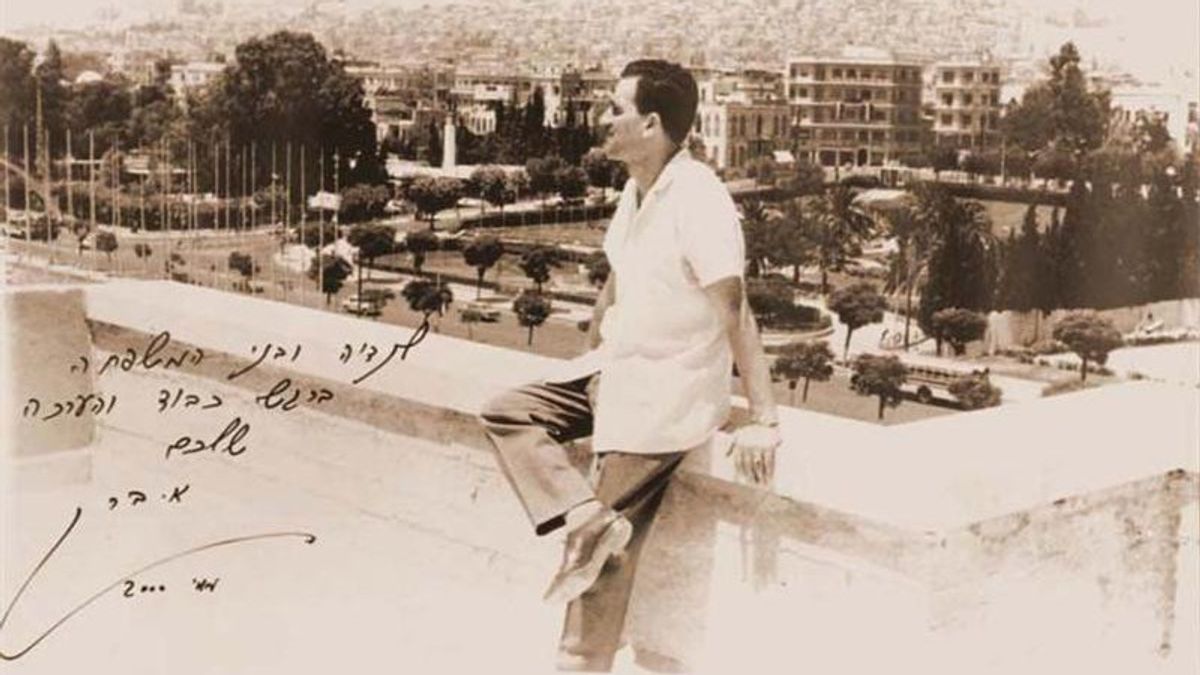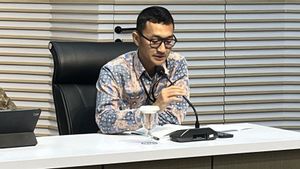JAKARTA - Eli Cohen completed sending a transmission report on his observations, when he was arrested by Syrian security forces on January 19, 1965. Not just any report, because it contains sensitive information, considering Cohen is an intelligence figure, making the latest report he sent.
" Cohen's latest report is on discussions at the Syrian General Staff with the president's participation at the time Amin Al-Hafez," said Mossad Director (Israeli intelligence agency) David Barnea when inaugurating a museum in memory of Cohen in the coastal town of Herzliya.
Cohen, a Jewish immigrant to Israel from Egypt, was recruited by Mossad and sent secretly to Damascus, where he operated from 1961 to 1965.
The information gathered and sent by Cohen is considered by Israel to be proven important, in the defeat of Syrian troops during the 1967 Six-Day War, as quoted by Reuters.
There has been a lot of speculation surrounding Cohen's arrest. Some argue Cohen failed to follow procedures and attempted to send too many messages, which caught the attention of the Syrian people.
Another blamed Cohen's superior, saying he was under great pressure to provide new information, which led to his arrest.
Nearly 60 years later, Barnea gave an answer, although not clear.
"I would respect this holy place and reveal, for the first time, after in-depth research conducted recently, that Eli Cohen was not arrested for the amount of transmission or pressure from the headquarters to deliver data too often," explains Barnea.
"Eli Cohen was arrested because her transmission was intercepted and regularized by the enemy. This is now an intelligence fact," he said.
Sentenced for espionage, Cohen was hanged in Damascus late that year. Syria, still at war with Israel, refused to repatriate Cohen's body at that time.
Barnea praised Cohen's "contribution to Israel's security" and said Israel's national intelligence agency would continue to seek more information about Cohen's time spent in Syria.
In addition, he also vowed to continue the search for Cohen's body.
"Eli Cohen is one of our best agents," Barnea said, praising Cohen's "chaotic spirit, courage, values and dedication", saying she served as an "source of inspiration" for all Mossad personnel.
"We all learn from him, even today, from his Zionism, his sacrifice and dedication," said Barnea.
In February 2021, it was reported that Russia, in collaboration with the Syrian authorities and under Israeli demand, was looking for Cohen's body in the Yarmouk refugee camp area, southern Damascus to be transferred to Israel.
The following month, an object Cohen believed to belong to was reportedly transferred to Israel. Citing unnamed Syrian government sources, an Israeli report said at the time that the items could be Cohen documents or clothes.
However, the Israeli Prime Minister's Office at the time Benjamin Netanyahu, denied the report and it is still unknown whether such objects actually exist.
Barnea said Mossad would donate original documents containing Cohen's transmission to the new museum set up in memory of her.
The English, Chinese, Japanese, Arabic, and French versions are automatically generated by the AI. So there may still be inaccuracies in translating, please always see Indonesian as our main language. (system supported by DigitalSiber.id)








